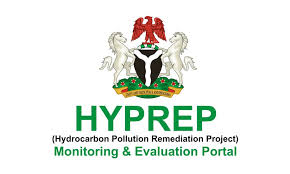In a surprising twist, President Bola Tinubu has swiftly revoked the appointment of Dr. Olufemi Adekanmbi as Project Coordinator of the Hydrocarbon Pollution Remediation Project (HYPREP). Adekanmbi’s tenure lasted a mere 48 hours before being replaced.

The decision, announced by presidential spokesman Ajuri Ngelale, reinstates Professor Nenibarini Zabbey to the coveted position. Zabbey, who previously held the role, was removed in May 2023 by former President Muhammadu Buhari, only to be reinstated now under Tinubu’s administration.
The abrupt change in leadership underscores the critical nature of the HYPREP project, which aims to address environmental pollution caused by hydrocarbon activities in Nigeria. Tinubu’s performance review led to the conclusion that Zabbey is best suited to navigate the project’s complexities and regulatory guidelines.
Zabbey’s return brings continuity and experience to the role. With three years of prior service, he is well-versed in the challenges faced by HYPREP. His immediate reinstatement reflects the urgency of the project and the need for steady leadership.
As the nation grapples with environmental degradation, the HYPREP Coordinator plays a pivotal role in coordinating efforts to remediate polluted sites, protect communities, and restore ecosystems. Tinubu’s decision underscores the project’s significance and the importance of effective leadership in achieving its goals.
The Hydrocarbon Pollution Remediation Project (HYPREP) is a critical initiative aimed at tackling environmental degradation caused by oil and gas activities in Nigeria. As Africa’s largest oil producer, Nigeria faces significant challenges related to pollution, ecosystem damage, and health risks for local communities. Let’s delve deeper into the context and implications of this recent leadership change.
1. The Environmental Crisis:
Nigeria’s oil-rich Niger Delta region has suffered decades of environmental degradation due to oil spills, gas flaring, and other hydrocarbon-related activities. These incidents have contaminated water sources, destroyed farmlands, and harmed aquatic life.
HYPREP was established in 2016 to address these issues by remediating polluted sites, restoring ecosystems, and providing relief to affected communities.
2. The Role of the HYPREP Coordinator:
The HYPREP Coordinator holds a crucial position in overseeing the project’s implementation. This individual must navigate complex regulatory frameworks, collaborate with stakeholders, and ensure efficient execution of remediation efforts.
Professor Nenibarini Zabbey’s reinstatement underscores the significance of this role. His prior experience equips him to handle the multifaceted challenges associated with environmental restoration.
3. Leadership Dynamics:
Dr. Olufemi Adekanmbi’s brief tenure highlights the volatility of leadership appointments. The sudden reversal by President Tinubu indicates the project’s urgency and the need for decisive action.
Adekanmbi’s removal after just 48 hours raises questions about the initial selection process and underscores the importance of thorough vetting for such critical roles.
4. Community Impact:
Local communities in the Niger Delta bear the brunt of environmental pollution. Their health, livelihoods, and cultural heritage are at stake.
Adequate communication, community engagement, and transparency are essential for building trust and ensuring that HYPREP’s efforts align with community needs.
5. Technical and Financial Challenges:
Remediation involves complex engineering, scientific assessments, and monitoring. Funding constraints and bureaucratic hurdles can hinder progress.
Zabbey’s familiarity with these challenges positions him well to drive results.
6. International Attention:
The Niger Delta’s environmental crisis has drawn global attention. International organizations, NGOs, and environmental activists closely monitor HYPREP’s progress.
Effective leadership is crucial not only for Nigeria but also for demonstrating commitment to sustainable development on a broader scale.
The HYPREP project remains a beacon of hope for environmental restoration in Nigeria. As Professor Zabbey takes the reins once again, the nation looks to him to lead with vision, resilience, and a commitment to healing the land and its people. The saga continues, with Professor Zabbey back at the helm, ready to steer Nigeria toward a cleaner, more sustainable future.



